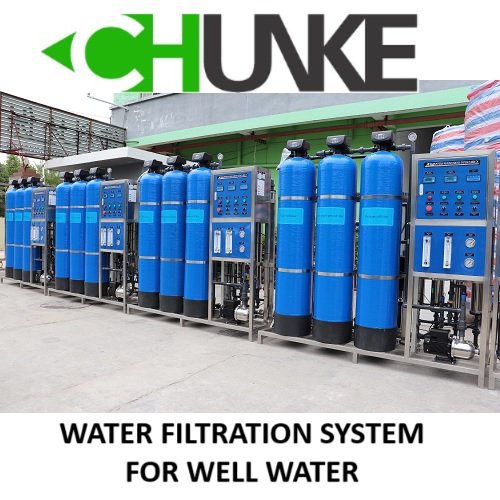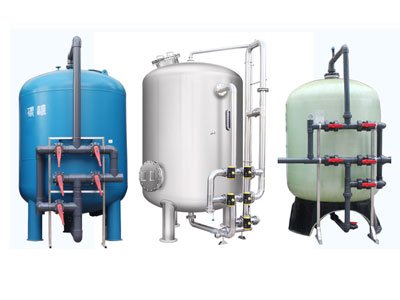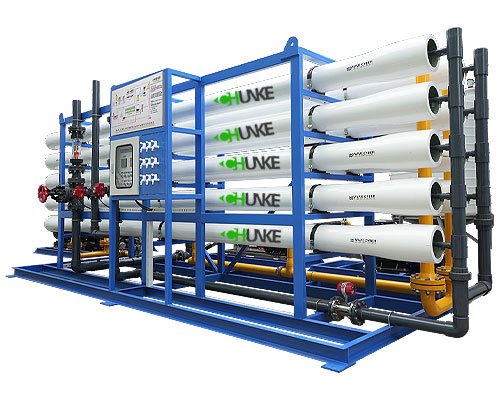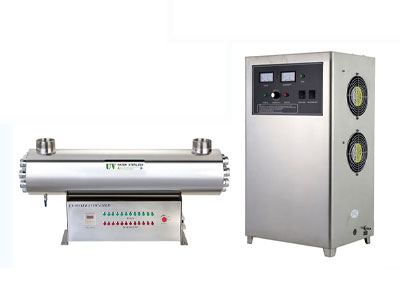
When it comes to your well water, ensuring its safety and quality is of utmost importance. Contaminants such as bacteria, viruses, sediment, and chemicals can pose serious health risks and damage your plumbing system. This comprehensive guide will walk you through everything you need to know about water filtration systems for well water. From the different types of filters to their installation and maintenance, we’ll cover it all. With the right filtration system, you can enjoy clean, safe, and great-tasting water right from your tap.
The Importance of Well Water Filtration
Well water is a valuable resource that requires proper filtration to remove impurities. Unlike municipal water supplies that are regulated, private wells are the responsibility of the homeowner. Without adequate filtration, you run the risk of consuming water contaminated with harmful substances. By investing in a well water filtration system, you can:
- Ensure the removal of bacteria and viruses: Well water can contain harmful microorganisms that can cause illnesses. A reliable filtration system will eliminate these contaminants, providing you with safe drinking water.
- Remove sediment and particles: Sediment and particles can clog pipes, damage appliances, and affect the taste and appearance of your water. Filtration systems effectively remove these impurities, extending the lifespan of your plumbing system.
- Eliminate chemicals and contaminants: Depending on your location, well water may contain chemicals such as chlorine, pesticides, and heavy metals. A filtration system will target and remove these substances, ensuring the purity of your water.
- Improve the taste and odor: Well water may have a distinct taste and odor due to minerals and organic matter. Filtration systems can enhance the taste and odor of your water, making it more enjoyable to drink and use for cooking.
- Reduce the reliance on bottled water: With a well water filtration system, you can have access to clean and safe water directly from your tap, reducing the need for single-use plastic bottles and saving you money in the long run.
Understanding Different Types of Filtration Systems
There are various types of filtration systems available for well water. Each system targets specific contaminants and offers unique benefits. Here are the most common types of well water filtration systems:
1. Sediment Filters
Sediment filters are the first line of defense against larger particles such as sand, silt, and rust. These filters are typically designed with a porous material that traps and removes sediment from the water. Sediment filters can be installed at the point of entry to the house or at specific points of use, such as under the sink.
Pros:
- Effective in removing larger particles
- Improves the lifespan of plumbing fixtures and appliances
- Easy to install and maintain
Cons:
- Does not remove dissolved contaminants or microorganisms
- Requires regular replacement or cleaning to prevent clogging

2. Carbon Filters
Carbon filters are commonly used for their ability to remove chlorine, volatile organic compounds (VOCs), and unpleasant odors and tastes. These filters contain activated carbon, which attracts and adsorbs contaminants, leaving you with cleaner and better-tasting water.
Pros:
- Removes chlorine, chemicals, and odors
- Enhances the taste of water
- Can improve the quality of water for cooking and brewing
Cons:
- May require frequent filter replacements
- Limited effectiveness against certain minerals and microorganisms

3. Reverse Osmosis (RO) Systems
Reverse osmosis systems are highly efficient in removing a wide range of contaminants, including bacteria, viruses, dissolved minerals, and chemicals. These systems use a semipermeable membrane to separate impurities from water, leaving you with purified water.
Pros:
- Removes a wide range of contaminants
- Improves taste, odor, and clarity of water
- Can be installed under the sink or at the point of entry
Cons:
- Requires regular maintenance, including membrane replacement
- Produces wastewater during the filtration process
4. Ultraviolet (UV) Sterilizers
UV sterilizers use ultraviolet light to destroy bacteria, viruses, and other microorganisms in the water. These systems are often used in conjunction with other filtration methods to provide complete disinfection.
Pros:
- Highly effective in killing bacteria and viruses
- Chemical-free disinfection method
- Low maintenance and long-lasting UV lamps
Cons:
- Does not remove sediment or chemicals
- Requires electricity to operate
5. Ozone Generators

Ozone generators produce ozone gas, which effectively kills bacteria, viruses, and other microorganisms in the water. These systems are generally used in combination with other filtration methods for comprehensive water treatment.
Pros:
- Powerful disinfection properties
- Destroys bacteria, viruses, and odors
- Can be used in both residential and commercial applications
Cons:
- Requires periodic maintenance and ozone generator replacement
- Does not remove sediment or chemicals
6. Desalination Systems
Desalination systems are specifically designed to remove salt and dissolved minerals from brackish or saline well water. These systems use reverse osmosis or distillation processes to produce freshwater.
Pros:
- Removes high levels of salt and minerals
- Suitable for areas with brackish or saline water sources
- Provides a freshwater source for drinking and irrigation
Cons:
- Expensive to install and maintain
- Requires electricity to operate
- Generates wastewater during the desalination process
Selecting the Right Filtration System for Your Well Water
Choosing the right filtration system for your well water depends on various factors, including the quality of your water, the specific contaminants present, and your budget. Here are some key considerations to help you make an informed decision:
1. Water Testing
Before selecting a filtration system, it’s essential to understand the quality of your well water. Conduct a comprehensive water test to identify the contaminants present and their concentrations. This will guide you in choosing the appropriate filters for your specific needs.
2. Water Flow Rate
Consider the flow rate of your well water when selecting a filtration system. A system that cannot handle the flow rate of your water supply may result in reduced water pressure or inefficient filtration. Consult with a professional to determine the optimal flow rate for your household.
3. Contaminant Removal Efficiency
Different filtration systems have varying levels of efficiency in removing specific contaminants. Review the manufacturer’s specifications and performance data to ensure that the system you choose can effectively remove the contaminants present in your well water.
4. Maintenance and Replacement
Factor in the maintenance requirements and replacement schedule of the filtration system. Some systems require regular filter replacements, while others may need periodic cleaning or membrane replacement. Consider the long-term costs and convenience of maintaining the system.
5. Certification and Compliance
Look for filtration systems that have been independently tested and certified by reputable organizations such as NSF International or the Water Quality Association (WQA). These certifications provide assurance that the system meets industry standards for performance and safety.
Installation and Maintenance of Well Water Filtration Systems
Proper installation and regular maintenance are crucial for the effective operation of well water filtration systems. Here are some essential steps to follow:
1. Professional Installation
For complex filtration systems such as reverse osmosis or desalination systems, it’s recommended to hire a professional for installation. They have the expertise and tools to ensure proper system setup and minimize the risk of leaks or damage.
2. Regular Filter Replacements
Follow the manufacturer’s guidelines for filter replacement intervals. Regularly replacing filters is essential to maintain the filtration system’s effectiveness and prevent clogging. Keep a schedule and mark it on your calendar to ensure timely replacements.
3. System Sanitization
Some filtration systems, such as UV sterilizers, may require periodic sanitization to maintain their efficiency. Follow the manufacturer’s instructions for cleaning and disinfecting the system to prevent the buildup of bacteria or biofilm.
4. Professional Maintenance
Consider scheduling professional maintenance visits to inspect and service your well water filtration system. A trained technician can identify any issues, perform necessary repairs, and ensure the system is operating optimally.
Conclusion
Investing in a well water filtration system is an essential step in protecting your health and ensuring the quality of your water supply. By understanding the different types of filtration systems, selecting the right one for your needs, and following proper installation and maintenance practices, you can enjoy clean and safe well water for years to come. Remember to regularly test your water, replace filters as recommended, and consult with professionals for any installation or maintenance needs. With the right filtration system in place, you can have peace of mind knowing that your well water is free from contaminants and safe for consumption.

